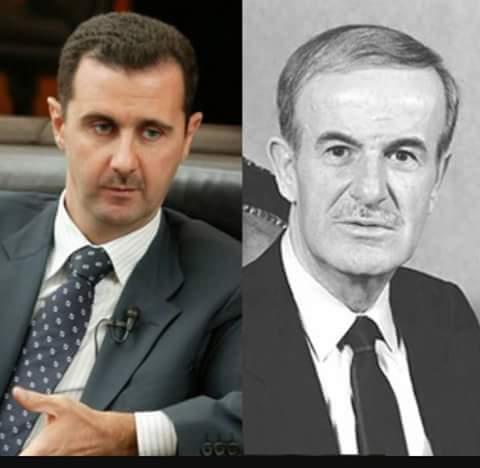Powerless Assad is controlled by Russia and Iran
Michael Young/The National/March 23/17
At the heart of any resolution to the conflict in Syria, many believe, is a political transition away from Bashar Al Assad. As desirable as that would be, given the Syrian regime’s many crimes, one should not have many expectations that it would change very much in Syria.
For as long as Mr Al Assad remains in office, he will continue to mobilise the many groups opposed to him. His remaining in office will doubtless hinder Syria’s reconstruction. However, it’s also true that the president has become a largely powerless frontman for a regime controlled by Iran and Russia. In other words, even if he was sent packing, power relations in Syria would largely stay the same.
A Lebanese politician close to the Syrian regime recently remarked that Mr Al Assad was no longer able to recruit men into his army. If the regime doesn’t have the ability to raise manpower to fight on its behalf, that means it will continue to be overly reliant on pro-Iranian militias and the Russian air force to sustain its military campaigns.
That Mr Al Assad has little say in these campaigns seems increasingly evident. It also means the president’s ability to define a political endgame to his satisfaction has been greatly diminished. Indeed, Mr Al Assad’s main reason for being kept in power, it seems, is to allow Iran and Russia to maintain the illusion that there is a Syrian state and regime that they can legitimately defend as each pursues its own interests in Syria.
Since 2011, the Al Assad regime has worked hard itself to keep this illusion alive. In cities located in governorates largely abandoned by its forces — for instance Deir Ezzor and Al Hasakeh — the regime has retained control over key administrative installations, such as land registries or airports.
This control will be vital for when the regime hopes to re-impose its authority in these areas. But it also serves another purpose: it creates a semblance of regime continuity, suggesting the emperor still has clothes.
However, Mr Al Assad’s conjuring trick cannot replace reality. A good illustration of the regime’s true power came in the first Astana round of negotiations last February. This was essentially driven by Russia, Turkey and Iran, with the Syrian representatives appearing to be second-tier participants.
That means that we are heading towards a situation in which Syria’s future will be defined principally through a consensus reached among foreign powers.
The late president Hafez Al Assad must be turning in his grave. A central motivation in his policies since taking power in 1970 was to ensure that Syria would no longer be buffeted by regional rivalries outside its control that had characterised the first decades after independence. In the 1950s and part of the 1960s, Syria had been shaped by the competition between Egypt and Iraq, before getting caught up in the US-Soviet Cold War.
For Hafez Al Assad, it was imperative that he put an end to Syria’s regional vulnerabilities and impose himself and his country as an indispensable, autonomous actor in Middle Eastern affairs.
This he largely did, playing the United States and the Soviet Union off against each other to his own advantage. Even his relationship with Iran was always one in which Syria and Iran were equals in an alliance serving both.
Under Bashar Al Assad those days are long gone. Syria has become a regional football, is a minor partner in the relationship with Iran, while Mr Al Assad is an illegitimate leader reviled by a majority of Syrians.
His removal from office would likely provoke a negative reaction only from officials who fear that his downfall presages theirs. Otherwise, absolutely nothing makes the president indispensable.
That is why, while Mr Al Assad’s exit may be sought by his foes, they should not presume it will alter very much. The president is in power only in name. Once this is understood, the parameters of any future agreement in Syria could become much clearer.
For adversaries of Mr Al Assad, it would mean recognising that far more important than the president’s stepping down is focusing on ways to reduce Iranian influence in Syria, which is much more potent on the ground than the Russian presence. That won’t be easy, because Tehran will seek to undermine any accord that ultimately loosens its authority over the Syrian state. But for those who want real change in Syria, it is the end of Iran’s presence that is essential, more than Mr Al Assad’s removal.
Nor should one rely too much on Russia in any such endeavour. Moscow’s latitude to contain Iran is not great, nor do the Russians have an interest currently in sidelining Iran. Tehran helps keep alive the charade of Al Assad rule, without which Russia itself would have no justification for being in Syria.
Mr Al Assad’s weakness is his strength, then. However, that should hardly reassure the president, or indeed his foes.






















